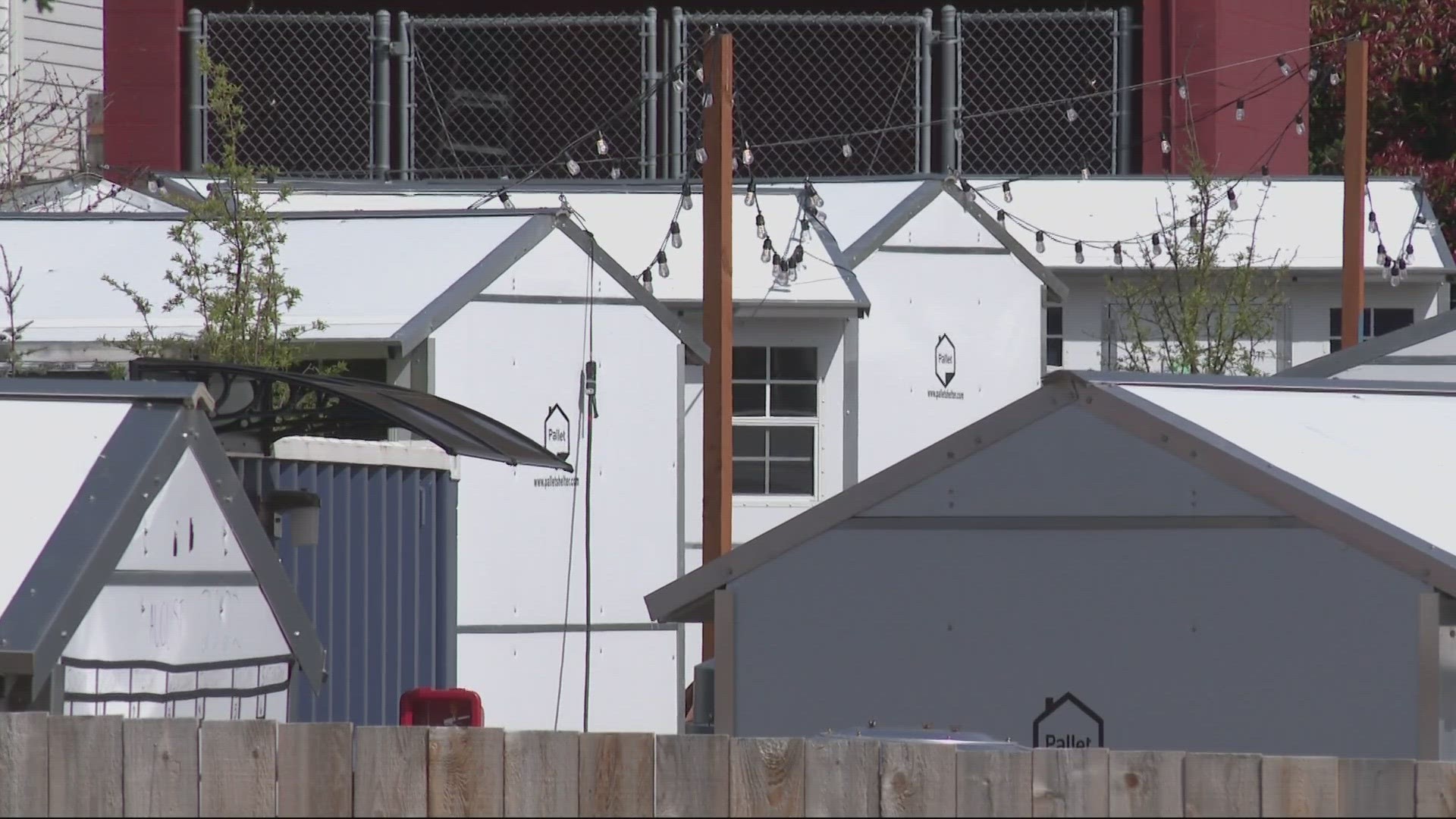PORTLAND, Ore. — It’s been almost one year since Portland’s first Safe Rest Village opened in Multnomah Village. Since then, a handful of other sites have opened across the city. The project is meant to move homeless people off the streets and into tiny homes with the end goal of helping them into permanent housing.
But before any of the projects had a chance to get going, some neighbors in the residential areas that surround them were foretelling turmoil.
“We're worried about things like needles being improperly disposed of. We're worried about an influx of crime, specifically violent crime,” said one woman who lived next to the Multnomah Village site.
KGW talked with the woman last June before the site officially opened. She has since sold her home and moved out of Portland in part due to the Safe Rest Village, neighbors said.
“We were second-position buyers and the original buyers backed out once they knew about the Safe Rest Village,” said Jade Brainard, the new owner of that home.
Brainard moved from the Pearl District and said living near a Safe Rest Village is better than what she experienced downtown when it came to the homeless crisis. As a result of the Safe Rest Village, Brainard paid much less than the asking price for her home. So did her neighbor, Gil Vaisman, who's also new to the neighborhood.
“We wanted to pay less for the rent because the price didn't justify whatever was happening behind our backyard,” Vaisman said.
He and other neighbors didn't complain about theft or drug use. Rather, they said noise has been his biggest issue with the site.
“It's on and off — sometimes it's very active, very noisy, slamming doors, yelling and shouting," Vaisman explained. "We make sure we don't leave anything open, no windows open on the west side of the house, curtains are all closed, and we make sure (of) that increased privacy awareness for us.”
Vaisman said that even though he feels the need to take these precautions, the site has been better than he anticipated.
“I thought it was going to be way worse, but again it's the first year,” he said.
RELATED: Some of Portland's homeless villages struggle to reach full capacity. Here's why
“I understand that kind of concern from folks … learning how to be good neighbors has been a challenge, but it's also been an opportunity because what we find is as we show up as good neighbors more and more people support the work that we do here,” said Andy Goebel, executive director for All Good Northwest, the group tasked with managing the site.
Since they opened in June, they’ve moved 49 people off the streets and into the tiny homes. Nine of the residents have since moved into permanent housing.
“While we celebrate that kind of success, we realize how many people are still either on the street or in shelters like this who are really needing permanent supportive housing,” Goebel said.
The outdoor shelter landscape
There are currently four Safe Rest Villages open across the city. Three more are slated to open soon, including the Sunderland RV Safe Park Village in Northeast Portland — which is move-in ready but experiencing administrative delays — and one off the Peninsula Crossing Trail in North Portland that's still under construction. Like the one in Multnomah Village, the North Portland location has received it's share of resistance from the surrounding neighborhood.
When the Safe Rest Village project is complete, Portland expects to have eight sites. Each is funded through the city’s federal grant from the American Rescue Plan Act, costing $1.5 - $3 million per year, to operate the villages. In addition, here's the breakdown for one-time set-up costs to establish each site:
- Site development, site leveling, permits, trenching, utility connections, fencing, etc. $350,000 - $500,000 per site.
- Communal service structures, restrooms with showers, laundry, kitchenettes, on-site management office, social spaces: $130,000 - $200,000 per site.
- Sleeping pods range from $10,000 to $30,000 depending on the unit and vendor.
The Safe Rest Village program has been beset by delays since early in the process — city officials initially planned to have six sites open by the end of 2021. Difficulties with successfully siting the locations and dealing with community pushback have frequently contributed to those delays.
While the Safe Rest Villages continue to trundle along, Mayor Ted Wheeler's proposal to open six large, sanctioned homeless camps across the city to pair with a ban on street camping is just beginning to get off the ground. In March, Wheeler confirmed that the first of those sites would be on a vacant lot near Southeast Powell Boulevard and 13th Avenue, administered by the California nonprofit Urban Alchemy.
But there have been signs that the "Temporary Alternative Shelter Sites," as the city calls them, could morph to more closely resemble Safe Rest Villages in order to secure state funding. Gov. Tina Kotek pledged to supply pod shelters for the first site and has indicated that tent camps would not qualify for the shelter funding distributed as part of her homelessness state of emergency.

